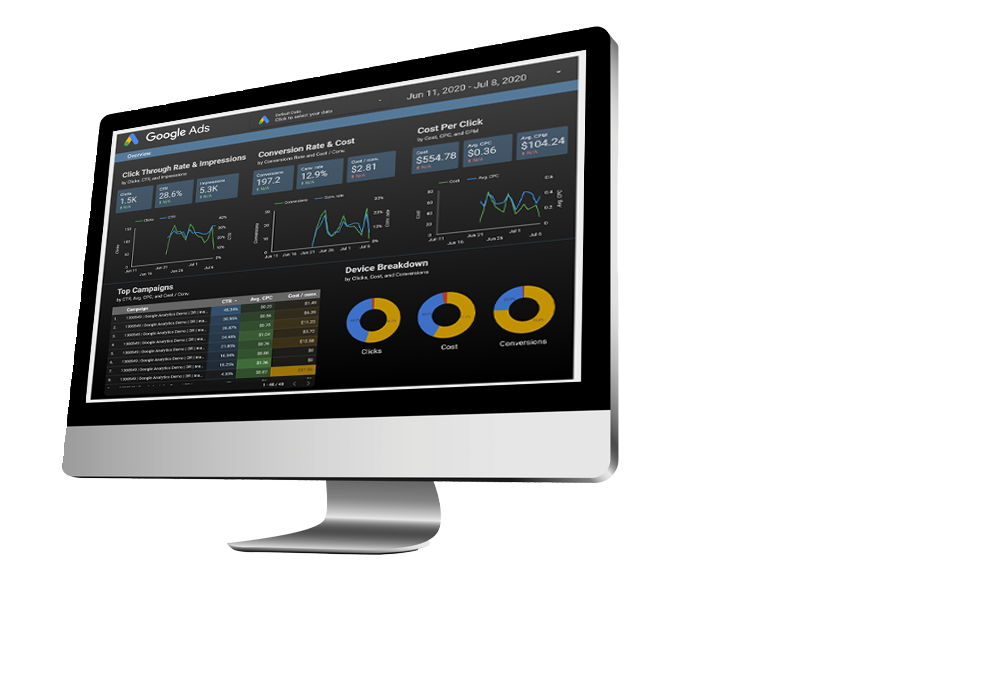DATA ANALYSIS
& REPORTING
Using various tools and techniques to collect, clean, and analyse large amounts of data to gain insights and inform business decisions.
The goal is to convert raw data into meaningful information that can be used to measure performance, identify trends, and inform strategic planning.
In the UK, there are various data analysis tools that are commonly used, such as spreadsheets, data visualisation tools such as Data Studio and Tableau, and statistical software like SPSS. These tools enable businesses to manipulate and make sense of their data, uncovering patterns, relationships and trends.
Once the data has been analysed, it is important to communicate the results in an effective and accessible manner. This is where reporting comes in, with the aim to present the insights in a clear, concise and easy-to-understand format, usually through the use of graphs, charts and tables.
WHY DATA ANALYSIS & REPORTING IS SO IMPORTANT
Data Analysis & Reporting is critical for a business as it helps organisations make informed decisions and achieve their goals. By analysing and reporting on data, companies can gain valuable insights into their operations and performance, enabling them to identify strengths, weaknesses, opportunities and threats.
Data Analysis & Reporting provides businesses with a comprehensive understanding of their customers, products, and operations. This helps companies to identify trends, track performance, and measure success, allowing them to make data-driven decisions and allocate resources more effectively.
Additionally, Data Analysis & Reporting helps organisations to identify areas for improvement and measure the impact of any changes they make. This allows companies to continuously optimise their operations, improve efficiency and increase profitability.
In today's fast-paced and highly competitive business environment, having accurate and timely information is essential. By using Data Analysis & Reporting, businesses can stay ahead of the competition, respond quickly to market changes, and make informed decisions that drive growth and success.

